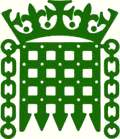

H O U S E OF C O M M O N S
APPGITA - All Party Parliamentary Group for
Involuntary Tranquilliser Addiction
House of Commons, London SW1A 0AA
Letter from Jim Dobbin MP to
The Rt Hon Gillian Merron MP
April 6, 2010
April 6, 2010
Gillian Merron MP
Minister of State
Department of Health
Richmond House
79 Whitehall
London SW1A 2NS
Dear Gillian,
Further to our correspondence on involuntary tranquilliser addiction I have been contacted by Mr John Perrot of Lancaster who has been addicted to Ativan for 35 years and has passed me a copy of a letter he received from Dora East of the Department of Health dated 23 March 2010. (Your Reference TO0000491274).
The letter effectively announces the result of the current Department of Health review on addiction to prescription medication as far as treatment services are concerned:
"there are concerns about the lack of robust evidence to support estimates that have been made of the scale of dependence on benzodiazepines. The Department has been unable to find firm evidence for the claim that a million people are addicted to these drugs and suffer adverse effects from using the medicine or withdrawing from it. …Primary Care Trusts will not be able to commission specialist services for benzodiazepine users without solid evidence that they are needed, particularly at a time when NHS resources are under pressure. However, the Department agrees that there may well be a case for improved support for the voluntary organisations which provide the helplines."
Surely the Department of Health should have obtained relevant statistics and awaited the outcome of its own review before making a decision on the introduction of tranquilliser withdrawal services. I would like to make it quite clear that a tranquilliser helpline does not constitute a tranquilliser withdrawal service.
Estimates of the number of patients dependent on tranquillisers have been calculated in several ways. Panorama commissioned a survey for their programme "The Tranquilliser Trap" in 2001 which produced an estimate of 1.5 million people taking benzodiazepines for more than 4 months. Academic studies of GP practices, including one by Professor Heather Ashton, arrive at a similar figure once Z drugs are included. Oldham Primary Care Trust calculated 5,000 tranquilliser dependent patients in Oldham when they commissioned specialised withdrawal services, that figure multiplies up to 1.5 million nationally.
The estimates have been necessary because the Department of Health has not produced any statistics on this subject. Precise information on long term tranquilliser and anxiolitic prescriptions is contained within the computers of the GPs. It would be a straightforward exercise to retrieve relevant information from the computers on which to base the calculation of the total figure of tranquilliser dependent patients. The APPGITA provided Anne Grosskurth with the contact details of Dr Stuart Winchurch (stuart.winchurch@nhs.net) who has offered assistance in this matter. Yet Nine months into the Department of Health's review of policy on addiction to prescription drugs no such statistics have been produced, even though the information is within the knowledge and control of the Department of Health.
Effective and safe tranquilliser withdrawal can be achieved by the slow tapering method developed by Professor Heather Ashton and is now provided by the withdrawal charities BAT and CITA. It is based upon a scientific understanding of the pharmacokinetic properties of the drugs involved. The treatment involves the design of an individual tapering programme, close liaison with the prescribing doctor and anxiety management provided during regular face to face contact. Your letter refers to BAT's partnership with NHS bodies and GP practices. CITA has similar contacts with 4 PCTs and 30 GP practices. The reason for this contact is that close cooperation with the prescribing doctor is an essential part of tranquilliser withdrawal treatment. A helpline on its own cannot provide prescriber cooperation and for that reason a helpline in isolation is not a tranquilliser withdrawal service or any substitute for it.
Regarding the cost of tranquilliser withdrawal services I believe they represent a saving not a cost to the health service. In my previous letter on this subject I explained the burden that involuntary tranquilliser addiction creates for the health service by giving the example of Keith Andrews of Oldham. Mr Andrews has been an involuntary tranquilliser addict for 45 years, was diagnosed with Parkinson's disease and as a result spent some 12 weeks as an inpatient in a psychiatric hospital at a cost of some £5,000 per week. The Oldham tranquilliser clinic intervened and are withdrawing Mr Andrews from prescribed benzodiazepine tranquillisers. The "Parkinson's" has disappeared, Mr Andrews did not have Parkinson's at all, he had misdiagnosed benzodiazepine side effects. This case illustrates the pressure on NHS resources caused by involuntary tranquilliser addiction. When considering tranquilliser services cost effectiveness rather than cost is the relevant calculation.
The government's drug policy costs £1.5 billion pa and some 200,000 heroin misusers are provided with specialist treatment by the National Treatment Agency at enormous expense. It is discriminatory to refuse to provide involuntary tranquilliser addicts with appropriate medical treatment for their illness, an illness that has been created by the health service.
Kind regards
Jim Dobbin MP
Email Jim Dobbin MP
Email Mick Behan
For more articles, newsletters and information please see the main APPGITA page.
APPGITA Main Page
« back · top · www.benzo.org.uk
»
